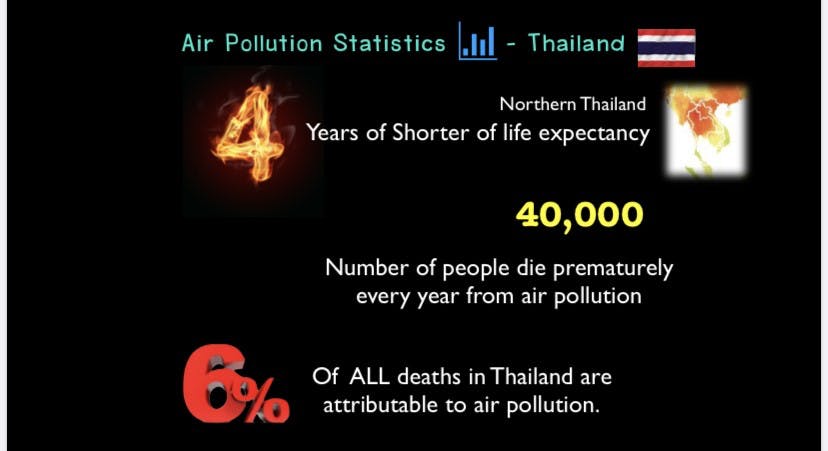Citylife sat down for a somber talk today with Dr. Rungsrit Kanjanavanit, Cardiologist at Chiang Mai University and one of the first medical doctors in Thailand to have raised the alarm about the health effects of the annual air pollution here in the North of Thailand well over a decade ago.
“This phenomenon has become increasingly hazardous over the years,” said Dr. Rungsrit. “It was when Doi Suthep disappeared that the people truly began to worry; before that you would sill see an outline, but when there was none, people really noticed. It was the first real warning sign. Over the past decades there have been increasing numbers of study internationally as well as locally, firstly about effects of PM10, and now, PM2.5 air particles. The connection between air pollution and death is becoming much clearer. It is strongly correlated. There is a wealth of evidence.”

Dr. Rungsrit said that most people are concerned about the respiratory system, but the health risks in fact go far beyond that. He explained that smokers don’t just have lung cancer, they also have heart attacks and strokes. The same with pollution. Small particles are absorbed into the blood system and causes atherosclerosis and clotting which can also cause autonomic dysregulation of the nervous system.
Chiang Mai and the North have been collecting data and studying the profound effects on heath from air pollution for the past ten years. Concerns are now for both short term and long term health effects.
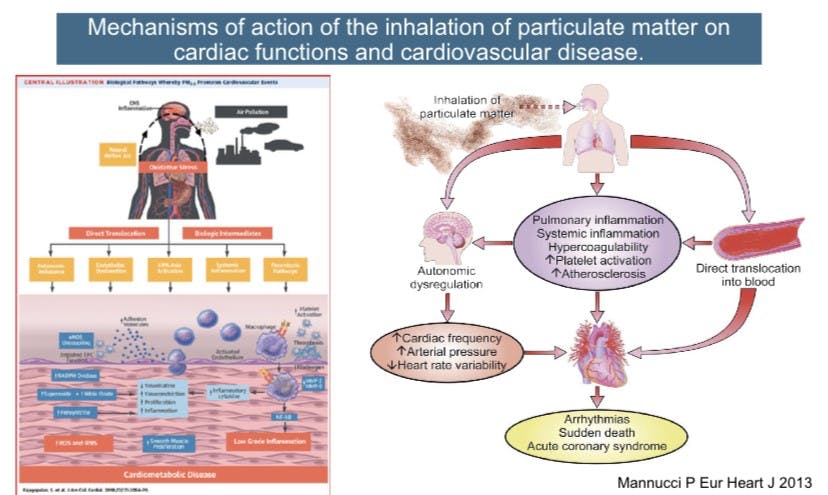
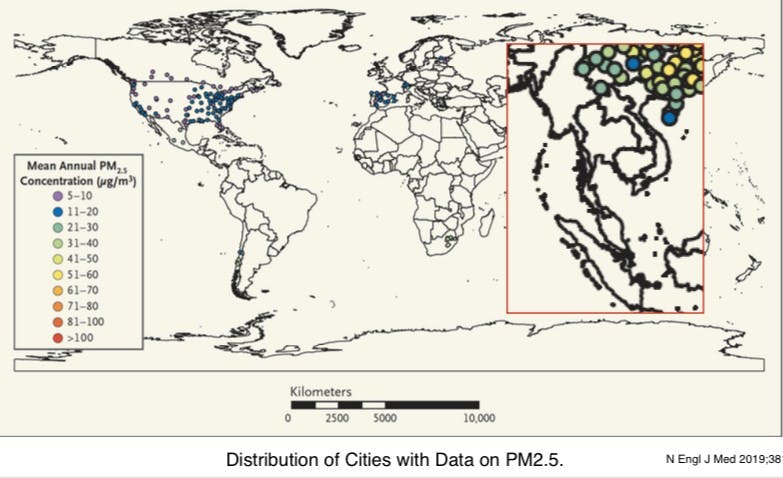
“You have to look at it from two timeframes, there is the short term effects and long term effects,” explained Dr. Rungsrit. “Like smoking cigarettes, you don’t die today unless you are already at risk. The short term effects could be irritation, panting, and such. However, we now know that globally, for every 10ug/m3 annual increase in PM2.5 levels, there is a 3% higher risk factor and a 6% increase in total mortality. Chiang Mai averages at around 30-40ug/m3 year round, which means that the short term increase to our health risk is increased by around 10-12%. On average we have about a 2.1% increase for hospitalisation with every 10ug/m3 increase. It normally takes about two to three days after a pollution spike for hospitalisation to occur. This may not sound so bad. But wait until we talk about the long term risks.”
“You can see from charts that there is a direct correlation between hospitalisation for respiratory issues and the spike in pollution in the North of Thailand. Heart diseases can cause quick death but lung problems can linger, so we aren’t really seeing numbers there yet.”
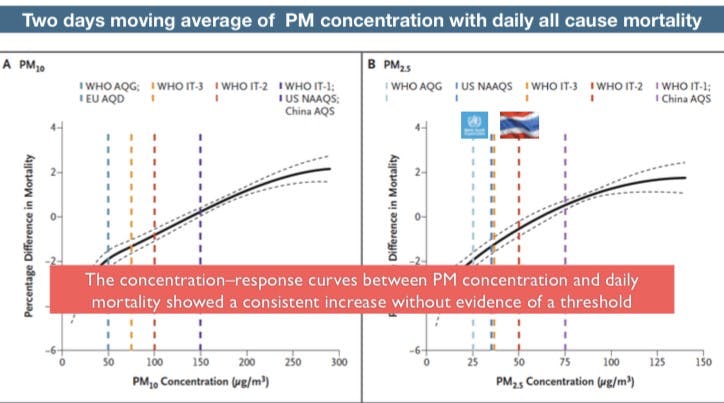
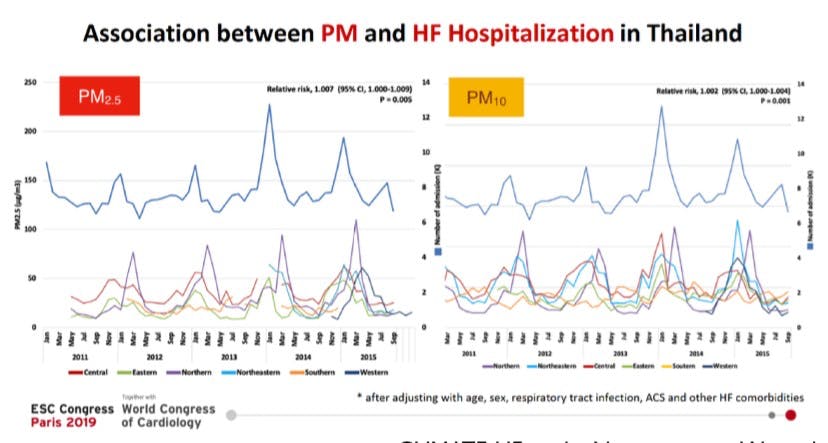
“When it comes to long term effects of air pollution it is all about accumulation. You can see this slide of an ultra sound which shows the thickness of neck arterial walls. In the slide from a community with an average of only three or 4 ug/m3, very clean air, you can see absolutely no change to the thickness over time. But a slight increase to just 7ug/m3 and you can see the increased thickness quite clearly. This is why our average life expectancy if we don’t mitigate air pollution risks with masks or air purifiers is lower than it should be. Here in Chiang Mai on average we have 2-4 years less to live. The rest of Thailand sits at around one year. This is why we need to warn the public and educate people and hope for a government that has the will and commitment to solve this problem.”
“Your readers are likely going to be OK. If you wear masks and use air purifiers or escape during the polluted month, you will cut your risk by 50%. The problem is the poor who simply don’t have the tools we have to protect ourselves. Only the rich can breathe clean air.”
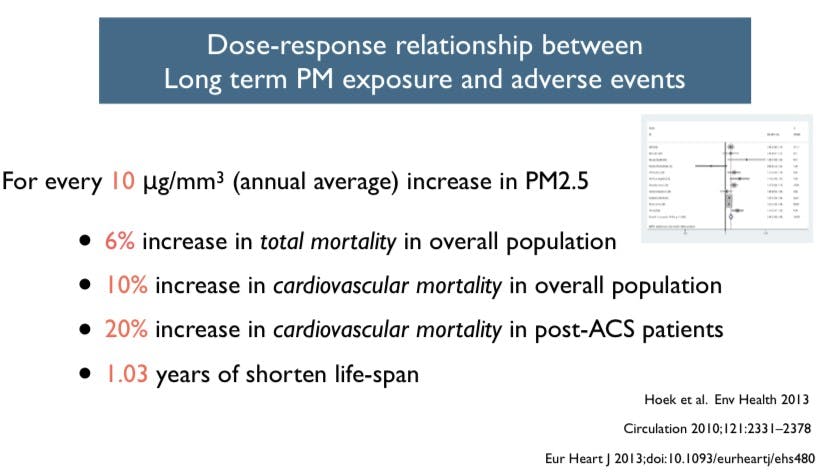
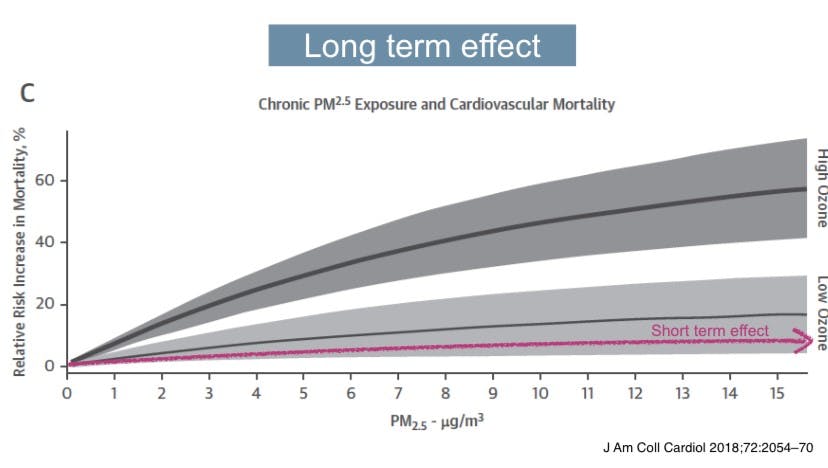
When asked about effects on the health for very short exposure, such as for tourists, he replied, “It is up to them to judge the risk. Short term exposure may not be too bad (unless on a day like this). But as a responsible host I would recommend them to postpone their trip. Do come back again when the conditions improve. Our local economy depends on tourism but a responsible host would put their guests’ health concerns above anything else.”
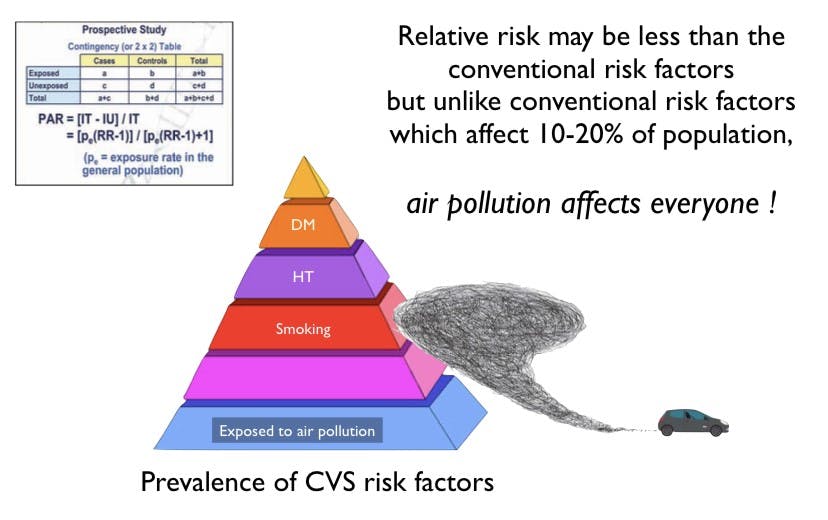

Regarding the role of the government, the doctor had this to say, “They are doing something, but I think the concern is not up to the magnitude of the problem. Their political will is not strong enough. They are doing something but it is just not enough. They are not putting enough effort or money to it. The problem is not easy, it is a multi-factor issue. I dont think that this problem will go away very quickly as it not just our country, it is the region.”
“Only uncivilised or unaware societies would ignore these facts,” said the doctor.
